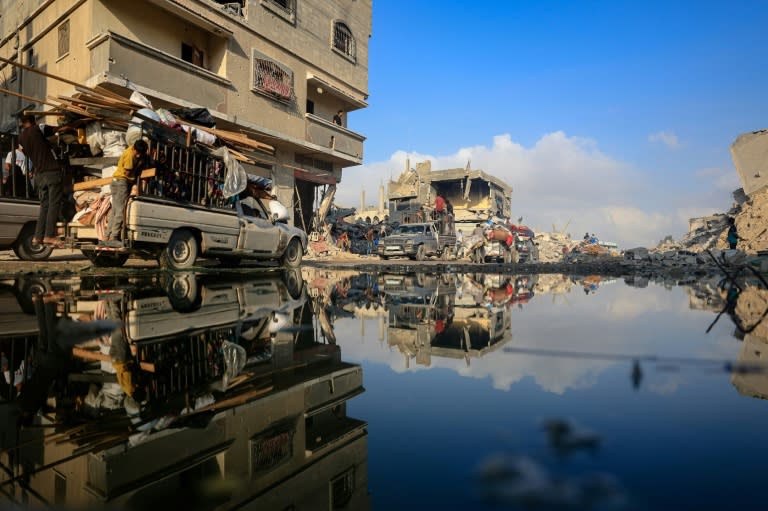80% of Gazans now displaced: UN humanitarian coordinator

The UN humanitarian coordinator for Gaza said Tuesday that 1.9 million people -- 80 percent of the territory's population -- were now displaced, adding she was "deeply concerned" by reports of new evacuation orders for Khan Yunis.
The United Nations has estimated that up to 250,000 people are impacted by the Israeli military order for civilians to leave parts of Khan Yunis and Rafah in Gaza, which has a total population of 2.4 million.
"Palestinian civilians in Gaza have been plunged into an abyss of suffering -- their home lives shattered, their lives upended," the UN coordinator for Gaza, Sigrid Kaag, told the Security Council.
"Over one million people have been displaced once again, desperately seeking shelter and safety, (and) 1.9 million people are now displaced across Gaza," she said.
"I'm deeply concerned about reports of new evacuation orders issued in the area of Khan Yunis," Kaag added.
"The war has not merely created the most profound of humanitarian crises. It has unleashed a maelstrom of human misery."
She said that not enough aid was reaching the war-torn strip, and that the opening of new crossings, particularly to southern Gaza, was necessary to avert a humanitarian disaster.
Kaag said the Rafah crossing between Gaza and Egypt should be reopened, and also pleaded with the international community to do more to fund relief efforts.
Aid volumes entering Gaza had "dropped significantly" since the start of the Israeli operation in Rafah, she added.
UN Secretary-General Antonio Guterres's spokesman said "yesterday's orders for the evacuations of 117 square kilometers in Khan Yunis and Rafah governorates apply to about a third of the Gaza Strip, making it the largest such order since October."
"An evacuation of such a massive scale will only heighten the suffering of civilians," said the spokesman, Stephane Dujarric.
Hamas's October 7 attack on southern Israel -- which triggered the Israeli offensive -- resulted in the deaths of 1,195 people, mostly civilians, according to an AFP tally based on Israeli figures.
The militants also seized 251 hostages, 116 of whom remain in Gaza, including 42 the army says are dead.
Israel's retaliatory offensive has killed at least 37,925 people, also mostly civilians, according to data from the health ministry in the Hamas-run territory.
Israel has not specifically said there will be a military operation in southern Gaza, but so far nearly every evacuation order has heralded major battles.
Looking beyond the conflict, the UN ambassador for Security Council member Slovenia questioned whether a ceasefire would significantly ease the humanitarian crisis.
"What's the guarantee that it will be easier to deliver aid? Because there will be still checkpoints there... there will be still no trucks," said the envoy, Samuel Zbogar.
"There might be still problems, and big expectations, after a ceasefire."
gw/sst

 Yahoo News
Yahoo News 
